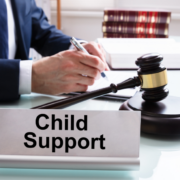Stepchild Custody Issues
When divorcing, stepparents are often conflicted about maintaining a relationship with their stepchildren. If you have known your stepchildren for a long time and/or were a significant part of their lives, you may want to continue those relationships after the divorce.
Does a divorce end a spouse’s role in raising a stepchild? Not necessarily. Although uncommon, a judge may order a stepparent to have custody of a child after a divorce if they find it is in the child’s best interest. A judge can also order that a stepparent have visitation with a stepchild to maintain the relationship.
Who Qualifies as a Stepchild?
A stepchild is your spouse’s child by a former partner. So if you marry, and your new spouse already has a child, you are a stepparent.
What is Child Custody?
Child custody gives a person certain rights concerning a child. The adults involved can agree to a custody arrangement (which needs a judge’s approval), or the issue can be litigated. There are two different types of custody:
- Physical: The adult’s right to have the child spend time or live with them. This custody could be sole (one person has full custody), primary (the child lives primarily with you), shared, or partial (also known as visitation rights).
- Legal: This allows the adult to make essential decisions for a child. This can include medical, educational, religious, legal, and other issues impacting the child’s well-being. There is either sole or shared legal custody.
A judge’s primary concern when deciding who should have what kind of custody is what is in the child’s best interests. State statute lists 16 factors a judge may consider when deciding this issue, and they are free to consider others depending on the case’s facts.
These types of cases are filed by unmarried couples, or married couples separating or divorcing.
Could a Stepparent Have Custody of a Stepchild After Divorcing the Child’s Parent?
If there is a custody dispute between a parent and a nonparent, the law presumes the parent should get custody. This presumption can be rebutted by clear and convincing evidence. For instance, if the parent (s) have a serious substance abuse issue (alcoholism, drugs, or other addiction), have neglected the child in some way, or are not able to care for the child, then a stepparent may obtain custody.
You may be awarded custody depending on your involvement in the child’s life. If you stand in loco parentis (in place of the parent) for the child, you can seek custody rights. This legal status occurs if you help raise the child without a formal adoption, and a biological parent is not part of their life.
A judge may consider:
- How long you have acted in loco parentis
- Your level of parenting involvement
- How independent you are when acting as a parent
- The child’s emotional dependence on you and whether the child sees you as a parent
Judges have wide latitude, but not total discretion, when making these decisions.
Can a Divorcing Stepparent Who Adopted Their Stepchild Get Child Custody Rights?
If you formally adopted your stepchild, you are then their legal parent. As such, you have the same rights and obligations as a biological parent, so you can seek custody of the child if you are divorcing or separating from your spouse. Adoption of a stepchild is a common practice. It usually happens when both biological parents consent. It may also occur if a court involuntarily terminates a parent’s parental rights.
Adoption empowers a stepparent to make legal and medical decisions concerning a stepchild. You would be legally obligated to care for a child if your spouse becomes incapacitated or dies. Adoption also puts you in a stronger position to seek child custody rights if the marriage ends in a divorce.
Child Custody Lawyers You Can Trust
Whether you are a stepparent seeking child custody rights or a parent who wants to prevent that from happening, Karen Ann Ulmer, P.C. lawyers may be able to help you reach your goals. If you have questions about child custody or need legal representation, call us at (215) 752-6200 today.







